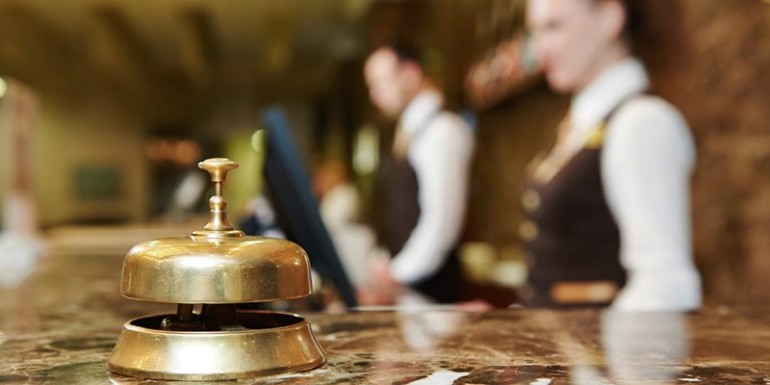Sponsored Listings:
Following the confusion sown by government over the reopening of intra-provincial leisure stays, (resulting in the announcement of a new regulation on Sunday) the hospitality industry has voiced its disappointment over the slipshod way the matter was handled by government. Hospitality operators also had to spend scarce resources preparing to open, only to have their plans dashed.
Megan Bedingham, owner of Cavern Drakensberg Resort, told Tourism Update’s sister publication, Travel News, that it had had to spend a ‘fair amount’ in order to trade. “We invested in a fogging machine, bought litres of sanitisers and disinfectants, and have had to equip our staff with all the personal protective equipment. Geysers had to be switched on, TVs reinstalled and DStv reconnected. Bars needed to be stocked, our curio shop restocked, and our kitchen supplies needed to be replenished. Our staff had to come back, some from far afield, which is an expense that they have had to incur.”
Bedingham said the mixed messages from government had resulted in guests not being able to commit to plans. “They book, they cancel. Staff must come in, then they shouldn’t… It’s been truly unsettling. And, as a larger resort that operates on high occupancies, small numbers mean that we run well below break-even. We accepted the gap because we believed it was important to work so that we could start making an attempt to support our staff. With TERS ending at the end of June, it would seem that our team will now need to be temporarily laid-off unless government and the tourism sector are able to extend TERS for the sectors that have been forced to remain closed.
“Resorts may open for business travel and conferences with a maximum of 50 delegates. I am not sure that many companies can afford conferences at this time, but it would appear that 50 delegates from different areas and provinces would be far more risky than a family of four or five travelling together to enjoy the outdoors.”
Bedingham added that the staff remained their greatest concern. “We hope that government will ensure that they are not left hungry and destitute. Unfortunately, with monthly fixed costs of over R250 000 (€13 071) as a ‘closed’ resort, we just cannot sustain 95 staff too. Most important is that when the time comes, we will have the resources to open once again.”
Lee Zama, CEO of Fedhasa, said: “It has been utterly disappointing and sloppy, the way that government has handled this matter. The hospitality industry works under very strict hygiene conditions. The additional COVID-19 protocols that we have implemented basically enhance what we already do, which is a very high standard of hygiene. This industry has been highly impacted by COVID-19. You have hotels operating at 5% at this time, because business travel has hardly done anything in terms of creating demand for us, so we are in a dismal state – it’s really, really bad.
“We were hoping that we would get some form of a lifeline with leisure stays to boost demand for the sector. With government not allowing that now, with the latest regulation that came through, it is totally devastating. It’s killing the sector completely. I need to understand, what are the risk metrics they are using that identify going to a hotel and isolating yourself there is a higher risk than other activities that we’re seeing in the economy?”
Zama added that load shedding was now an added issue, over and above all the others in the sector. “Now we have to deal with an electricity problem. Some relief is needed by the sector, and we cannot be carrying this burden. Government is dictating to us what we should and should not be doing, yet they’re putting nothing on the table in terms of any relief.”
David Maynier, Western Cape Minister of Finance and Economic Opportunities, said in a press release: “If the Minister of Tourism, Mmamoloko Kubayi-Ngubane, is comfortable that health and safety measures can be implemented for accommodation for business travel to open, then why can accommodation for leisure not be opened? And if the public can visit a casino, cinema or restaurant, why can a family not travel to a self-catering accommodation unit for a weekend away?” Maynier said he would be writing to both the Minister of Co-operative Governance and Traditional Affairs, Nkosazana Dlamini-Zuma, and the Minister of Tourism, to request that they urgently reconsider the decision.
In a press release, Western Cape Premier Alan Winde said: “We need to view the tourism sector as a partner in our COVID-19 pandemic and work with them to adapt to this new normal. The failure to do this will likely see the sector decimated, with more than 50% of jobs being lost. The knock-on effect for the overall Western Cape economy will be severe.” Winde said he would be raising the concern directly with the President as a matter of urgency.
City Lodge Hotel Group COO, Lindiwe Sangweni-Siddo, said the government would allow them to welcome back leisure travellers soon. “The opportunity that would arise from permitting leisure travel, albeit even only intra-provincial initially, would begin to move the hotel industry to a more sustainable level. All protocols are well prepared and executed for the current business travel market and would extend naturally to leisure travellers.”
Mark Jakins, Group Sales, Marketing and Revenue Director of Premier Hotels & Resorts, said: “Whilst Premier Hotels and Resorts is equally disappointed in the confusion and industry comments around intra-provincial domestic travel, we understand the severity of the situation facing South Africans, and the need to curb the spread of the virus. The communication from the government has been confusing, which hasn’t allowed for smooth planning. As a result, we deliberately adopted a conservative approach in our planning in operations and marketing – which hasn’t resulted in wasted expenditure.”
Source: tourismupdate.co.za










